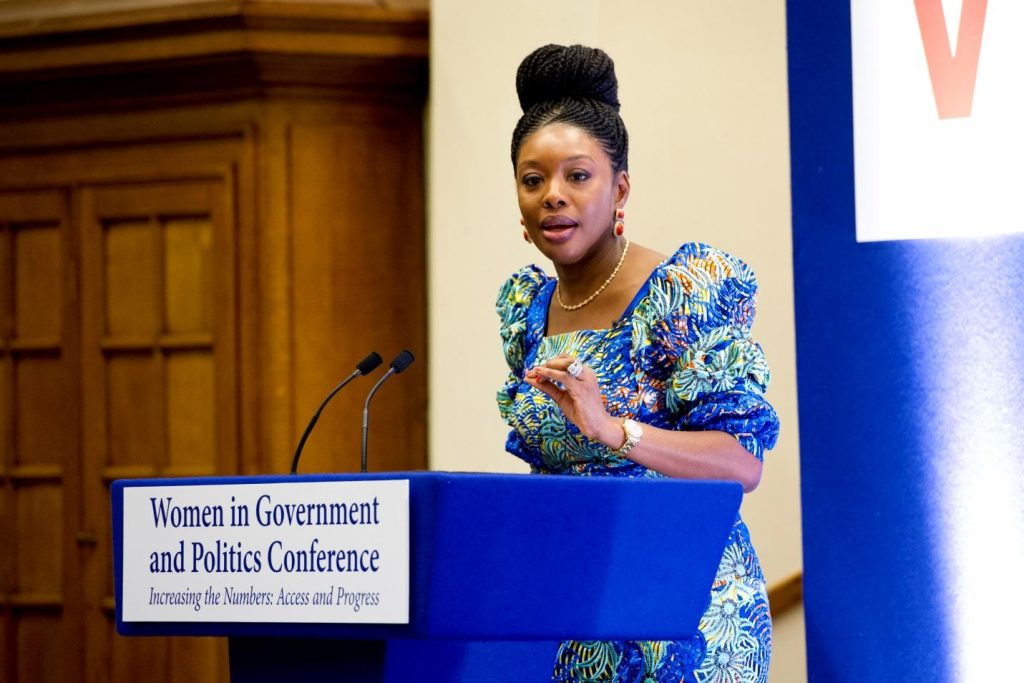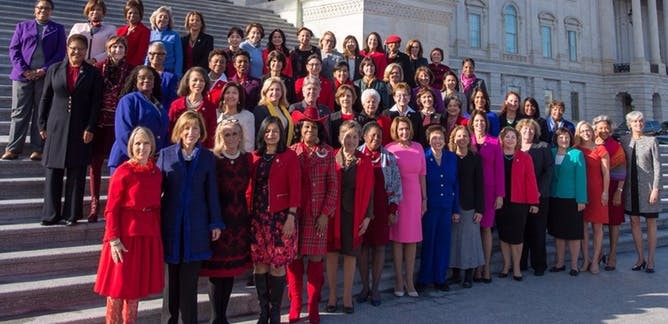By Silvana Koch-Mehrin 99 years ago, the World War I ended and the League of Nations was founded. The first Oreo cookie was designed and the pop-up toaster patented. It’s stuff for the history books. The latest World Economic Forum (WEF) Global Gender Gap Report shows that it will take another 99 years for the world to achieve gender-equal political representation if we continue at our current pace. Having only one woman for every four men in parliaments around the world is a clear indication of how ineffective societies are at tapping into the potential talent of more than 50% of the population. There are, of course, important variations: Nordic countries are the most gender equal, and Rwanda is the world champion for female participation in politics. Arab and Gulf countries, stand at the other end of the spectrum. UN Women estimates that globally, men represent 77% of parliamentarians, 82%…
A Step Forward for Women in African Politics
In October 25, 2018, the Ethiopian parliament elected its first female president, Sahle-Work Zewde. Though the role is largely ceremonial, it holds symbolic importance for women across the country and the continent, as Zewde will be the only female head of state in Africa. In her opening speech, she emphasized the importance of equality, telling MPs that if they thought she was talking too much about women, she had only just begun. Her election comes on the heels of another important step forward for Ethiopia, and neighboring Rwanda, who joined the meager ranks of countries with ministerial gender parity. In a cabinet reshuffle last week, Ethiopia’s Prime Minister Abiy Ahmed appointed ten female ministers, comprising half of the all cabinet posts. Days later, Rwanda’s President Paul Kagame announced that Rwanda’s new cabinet would also be gender-balanced. According to data from the Inter-Parliamentary Union, fewer than ten countries have reached parity…
Political Participation of Women: What Does This Mean For Gender Equality?
By Donah Mbabazi Any nation that fails to educate its girls or employ its women and allow them to maximise their potential is doomed to fall behind in the global economy. Imagine if you have a team and you don’t let half the team play, that’s stupid! That makes no sense.– Barack Obama, 44th President of U.S.A on his maiden visit to Kenya in 2015. For a very long time, women were consigned to the back, especially when it came to key issues, such as decision-making, and this led to infamous narratives like ‘women belong in the kitchen’, a statement that will drive any feminist nutty trying to explain just how wrong that is. There has been progress towards the equal representation of men and women in decision-making in the past ten years. According to statistics from UN Women, the percentage of women in parliament has nearly doubled in the…
Women on the Rise in Politics
Some of our readers will not be thrilled with this column, but facts are facts and nothing that I am writing is a surprise to people who follow politics closely. There is a political revolution going on all over America and the movement is being led by women. This has little to do with the ‘’Me Too Movement’’. It’s more about the fact that a lot of women don’t like what men have done to the American political system. David Gergen, a noted public figure who has served four presidents and his staff analyst James Pitch, recently penned an article “Why Nancy Pelosi is good for America.” Having survived a lifetime of challenges and personal attacks, like her or not, she is symbolic of the changes that are taking place in politics today. For year’s right up to the November election, Pelosi has been a Republican piñata, but the dust…
Leadership and Political Participation Among Women
The under-representation of women constitutes a serious democratic deficit, which undermines the legitimacy of the contemporary democratic ideal. Parity democracy and the promotion of women in decision-making positions are therefore important areas of action for EWL. Parity democracy implies the equal representation of women and men in decision-making positions. It goes a step further than quotas as it is based on the idea that women are not a minority: they represent more than half of humanity – a quantitative dimension – and one of its components – a qualitative dimension. Research shows that women’s under representation in politics boils down to these 5 Cs: Confidence: women – for a variety of highly rational reasons – have more doubts putting themselves up for election Candidate selection: once women agree to run, it’s often difficult for them to get an electable spot on the election list. Culture: politics is a men’s world.…
Why we need more Michelle Obamas
What better way to show someone that something is achievable than to point them in the direction of someone who actually did? Not just anyone but someone with a similar background as their own. Despite the efforts of the women’s movement across the globe women are still largely marginalized in terms of their participation in political, economic and social processes that affect them the most. The 21st-century woman has found her voice yet the percentage of women having a powerful role in different sectors is not reflective of her efforts. She is still not paid enough and there are still sectors she is nervous to approach and this is partly because she has believed that certain goals are not possible to achieve. At the same time venturing into a certain profession with no real guidance, no known success stories, no knowledge of what is required to succeed and no real…
How many women does it take to change a broken Congress?
The next United States Congress will have at least 123 women in the House and Senate, including two Muslim-American women, two Native American women and two 29-year-olds. Ten more women could still win in midterm races that remain too close to call. Starting in 2019, women will make up nearly a quarter of the 435-member House of Representatives – a record high. Currently, there are 84 women in the House. The female newcomers’ women will make waves in government – and not just because women legislators often bring greater attention to wage gaps, family leave policy, sexual harassment, child abuse and other critical issues that disproportionately affect women. As scholars who study political leadership, we believe more women will be also good for Congress for a more fundamental reason: They may just get a broken system working again. Women try to collaborate. Washington has been ferociously polarized since the 2016…




